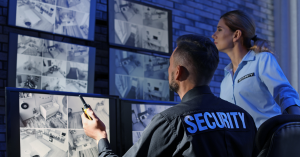
In the realm of security and surveillance, the term “visual patrolling” marks a significant evolution from traditional methods of keeping premises safe. It combines the latest technological advancements with strategic oversight to create a dynamic, effective way to monitor and protect properties. But what exactly is visual patrolling, and how does it stand apart in ensuring the safety of assets and individuals alike? Let’s delve into the intricacies of this modern security solution.
Understanding Visual Patrolling
Visual patrolling is a method of surveillance that involves the systematic observation of physical spaces through the use of cameras and other visual technology, often supplemented by patrols conducted by security personnel. It’s designed to deter criminal activity, identify suspicious behavior, and ensure that security protocols are being followed. The integration of technology allows for real-time monitoring and the capability to respond swiftly to any incidents that may arise.
Key Components of Visual Patrolling
Advanced Surveillance Cameras
At the heart of visual patrolling are high-definition, often AI-enabled, surveillance cameras. These cameras can cover extensive areas, offer night vision capabilities, and even provide facial recognition to enhance the security measures of a property.
Drone Surveillance
Incorporating drones into visual patrolling strategies allows for aerial surveillance, providing vantage points that are otherwise unattainable. Drones can quickly cover large, difficult-to-access areas, making them invaluable for comprehensive surveillance.
Mobile Patrol Units
Human elements remain crucial, with mobile patrol units conducting on-the-ground inspections. These units can respond to alerts from the surveillance system, perform random checks, and ensure that specific areas receive direct attention based on real-time data and analytics.
Real-time Monitoring and Response
Central to visual patrolling is a control center where all the surveillance feeds are monitored in real-time. This enables immediate response to any detected irregularities or security breaches, whether it means alerting on-site security personnel, contacting law enforcement, or initiating lockdown procedures.
Benefits of Visual Patrolling
Enhanced Coverage
Visual patrolling allows for surveillance of a broader area with fewer blind spots, ensuring more comprehensive coverage than traditional security methods.
Deterrence of Criminal Activity
The presence of cameras and regular patrol patterns acts as a significant deterrent to potential criminals, reducing the likelihood of theft, vandalism, and other crimes.
Quick Response to Incidents
With real-time monitoring, security teams can respond to incidents immediately, potentially stopping criminals in their tracks or mitigating the impact of security breaches.
Cost Efficiency
By integrating technology with human surveillance, businesses can optimize their security budget, relying less on physical manpower without compromising the effectiveness of their security measures.
The Future of Security
Visual patrolling represents the future of security, blending the best of technology and human insight to create a safer environment. Its adaptability and scalability make it suitable for a wide range of applications, from protecting corporate campuses to securing public spaces. As technology advances, so too will the capabilities of visual patrolling, making it an increasingly integral part of security strategies worldwide.
Conclusion
Visual patrolling is a dynamic and effective approach to security that leverages technological advancements to enhance the surveillance and protection of properties. It embodies the modern ethos of security — proactive, intelligent, and integrated — offering peace of mind in an increasingly complex world. As we move forward, visual patrolling will continue to evolve, setting new standards for what it means to be safe and secure.







